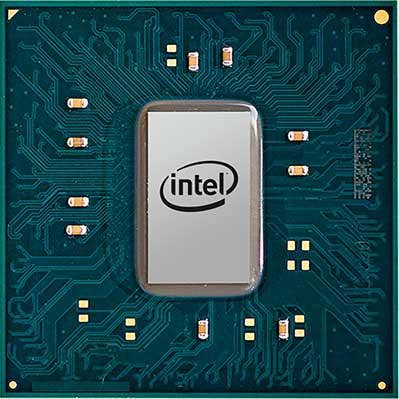5 Intel Bets That Didn't Work Out
[***Jane sent this back for more work, do not publish without Jen Follett's OK***]

Not All Bets Pay Off As Intended
While Intel is making big pushes into new ventures like connected cars and autonomous drones, not all of the semiconductor giant's bets have worked out as planned. In the past year, the Santa Clara, Calif.-based company made two of its largest acquisitions — collision avoidance software provider Mobile and reprogrammable chip marker Altera. At the same time, the company has made large divestments with the sale of subsidiaries Wind River and McAfee. And in the last few years, the company shuttered other projects that sought to help Intel gain a foothold in the mobile and wearables space.
What follows is a look at five Intel bets that didn't work out as the company intended.

McAfee
After acquiring McAfee for $7.7 billion in 2010, Intel spun out the cybersecurity business in 2017 in a deal that involved selling a 51 percent stake of McAfee to private equity firm TPG Capital. The deal was worth $4.2 billion, which included $3.1 billion in cash to Intel and a $1.1 billion equity investment by TPG. McAfee, which had been rebranded to Intel Security under Intel, emerged as a $2 billion standalone security vendor because of the transaction, which McAfee CEO Chris Young said would allow the company to be a "100 percent focused cybersecurity company that is a real platform player."

Wind River
Intel announced in early April that it was selling industrial Internet of Things subsidiary Wind River to private equity firm TPG Capital for an undisclosed amount. At the time, Tom Lantzsch, senior vice president and general manager of Intel's IoT group, said the sale of Wind River, which Intel acquired in 2009 for $884 million, was "designed to sharpen our focus on growth opportunities that align to Intel's data-centric strategy." Wind River was part of Intel's Internet of Things Group, whose annual revenue grew 20 percent to $3.2 billion last year, but the subsidiary, while profitable, had only represented a small percentage of that business group, according to a source close to Intel.

Smart Glasses
It was reported on April 19 that Intel is shutting down its New Devices Group after the team's augmented reality glasses project failed to catch investor interest. The news was first reported by The Information and later confirmed by Intel, which admitted that not all of the company's new technologies "develop into a product we choose to take to market." Intel's augmented reality project was only revealed to the public recently when The Verge in early February published a hands-on preview of the Vaunt smart glasses, whose technology stemmed from the company's $175 million acquisition of smart glasses maker Recon in 2015. Around that time, Intel was looking to attract outside investors with "strong sales channels" for the smart glasses division, which was valued at $350 million and had roughly 200 employees, according to a Bloomberg report. In an Intel statement, the company suggested that the Vaunt project failed to find the outside investment necessary.

Wearables
Intel's wearable's division, which was part of the New Devices Group, shut down in 2016 after disappointing sales and slower-than-expected growth in the overall market. The company's work on wearable devices stemmed from its $100 million acquisition of fitness device manufacturer Basis Science in 2014, which was done to build up the company's IoT strategy in healthcare around smartwatches. Beyond poor sales, the Basis watches also had a safety recall in 2016 due to overheating issues.

Mobile -- For Now
While Intel is still working to find a foothold in the mobile market, the company's largest failure in its string of efforts happened in spring 2016, when the company discontinued several families of chips for smartphones and tablets. As Recode reported at the time, Intel had spent more than $10 billion over three years but found that its investments weren't paying off as expected. The company's mobile and communications revenue had dropped precipitously, going from $1.7 billion in 2012 to $202 million in 2014 as losses mounted. Then in 2015, Intel's mobile unit was merged with the company's client PC group, which meant that the company would no longer report out mobile revenue.